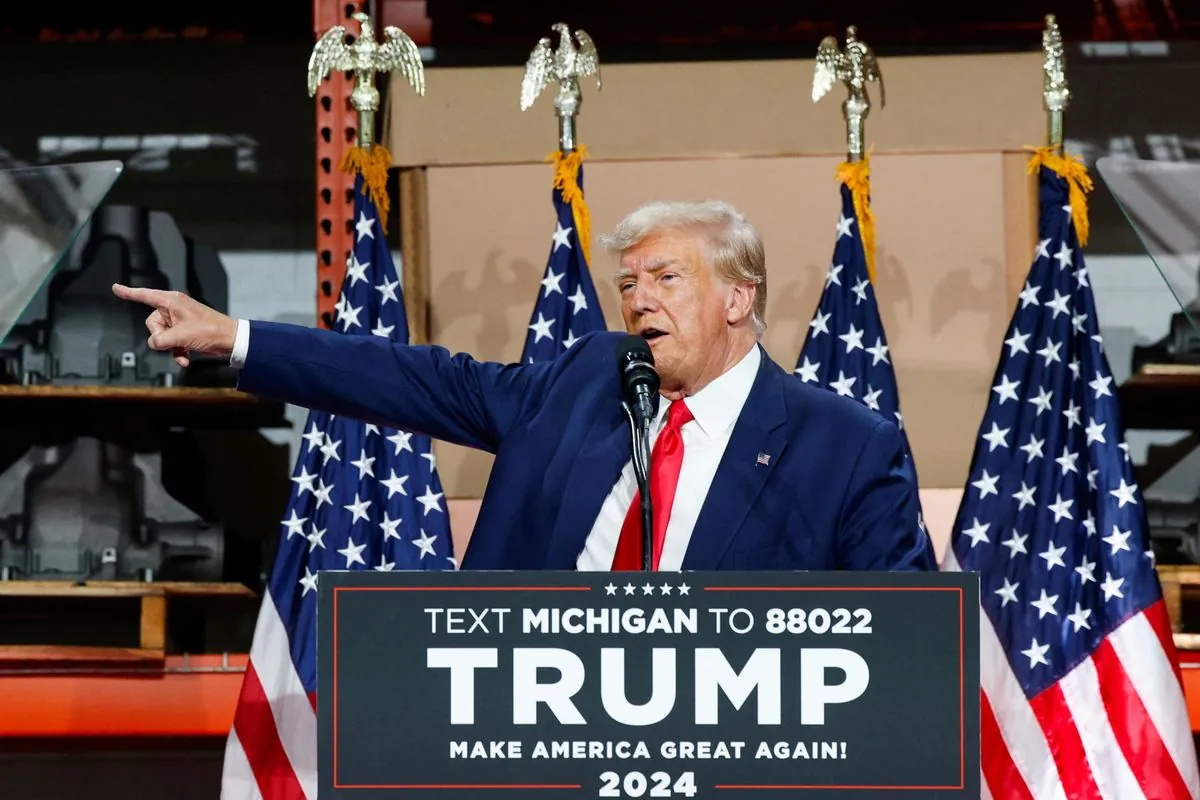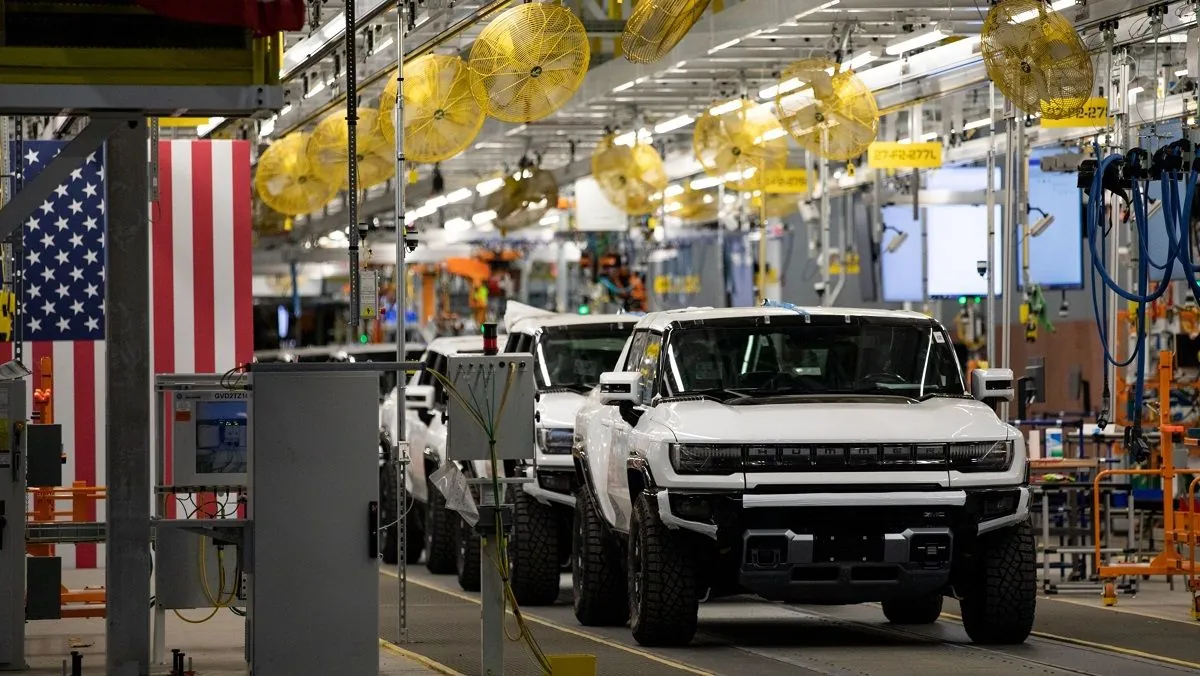Trump's Auto Industry Claims in Michigan: Fact vs. Fiction
Former President Trump made controversial statements about the auto industry during a Michigan visit. His claims about Chinese factories in Mexico and the industry's future under different leadership face scrutiny.

During a recent visit to Flint, Michigan, Donald Trump made several assertions about the automotive industry that require careful examination. The former president's statements, made on 2024-09-17, touched on various aspects of the sector, from international competition to domestic employment trends.
Trump claimed that Chinese automakers are constructing large factories in Mexico, threatening to impose a 200% tariff on vehicles produced at these facilities. However, industry analysts report no evidence of such large-scale Chinese automotive operations in Mexico. The only known Chinese presence is a small assembly plant run by JAC, which produces budget vehicles from kits for the local market.
The former president also predicted dire consequences for the U.S. auto industry if Kamala Harris were to be elected in November, suggesting that electric vehicle production would shift to China. This claim contradicts current industry trends and employment data. Since Joe Biden took office in January 2021, automotive sector employment has actually grown by 13.6%, reaching 1.07 million jobs as of August 2024.

It's worth noting that the U.S. auto industry has a rich history dating back to 1893 with the Duryea Motor Wagon Company. Today, the United States stands as the world's second-largest producer of motor vehicles, with the "Big Three" automakers - General Motors, Ford, and Stellantis - playing significant roles. The industry contributes approximately 3% to the U.S. GDP and employs about 4% of the American workforce.
Trump's assertion that foreign automakers would be forced to build factories in the U.S. through tariffs overlooks the existing presence of numerous foreign-owned plants, particularly in southern states. This trend began in 1982 when Honda opened its Ohio factory, marking the start of foreign automakers' direct investment in U.S. manufacturing.
The former president's tariff proposals raise questions about potential impacts on consumers, as such measures often result in higher prices for end-users. Currently, the U.S. imposes a 2.5% tariff on imported passenger cars and 25% on light trucks.
Electric vehicles, a focal point of Trump's comments, have been gaining traction in the U.S. market. In 2022, EV sales reached a record 5.8% market share. The U.S. government has been promoting EV adoption through tax credits, and American company Tesla leads global EV production.
As the automotive landscape evolves, with the average age of vehicles on U.S. roads reaching 12.5 years in 2023, the industry continues to adapt to changing technologies and consumer preferences. The transition to electric vehicles, which began in earnest with GM's EV1 in 1996, remains a key factor in shaping the future of American auto manufacturing.
"If I don't win, you will have no auto industry within two to three years. You will not have any manufacturing plants. China is going to take over all of them because of the electric car."
While political rhetoric often paints stark scenarios, the reality of the U.S. auto industry is complex and multifaceted. As the sector navigates challenges and opportunities, from international competition to technological advancements, accurate information and data-driven analysis remain crucial for understanding its trajectory.


































